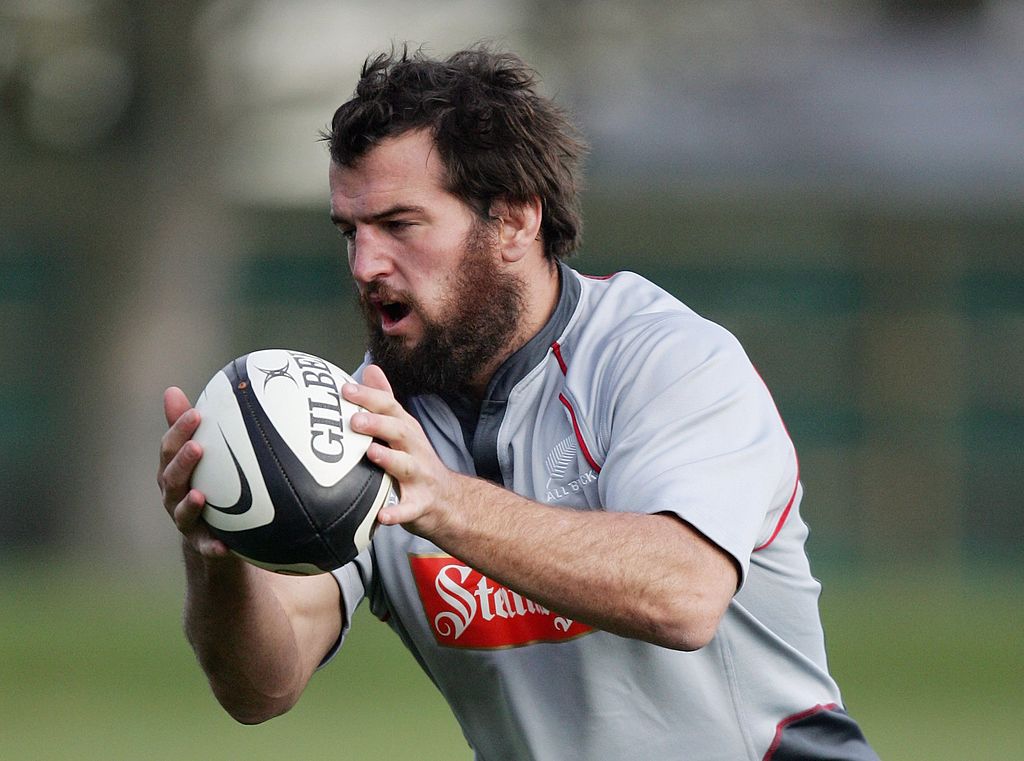
Once considered the best tighthead prop and highest-paid player in rugby, Hayman told Dylan Cleaver's The Bounce of his diagnosis and the emotional roller-coaster ride he's been on since retiring from rugby in 2015.
"I spent several years thinking I was going crazy. At one stage that's genuinely what I thought. It was the constant headaches and all these things going on that I couldn't understand," Hayman says.
That state of mind led Hayman down a road of alcohol abuse, suicidal thoughts and erratic behaviour; the latter leading to a suspended prison sentence in France after he admitted to charges of domestic violence.
In December last year, two former All Blacks, Hayman and Geoff Old, told The New Zealand Herald they had been in contact with British-based lawyers about their post-playing medical conditions.
Hayman initially declined offers to be tested to ascertain any damage to his brain over the course of his playing career. However, he relented after thinking of how his story could help fellow and future players.
"I ummed and ahhed for about 12 months about whether I'd do anything about it and find out if something was wrong with me, or whether I would just get on with life and hope for the best.
"I went to the doctors here before I went to the UK but the process seemed like it was going to take a long time and I was getting to the point where I needed answers," he says.
"It would be pretty selfish of me to not speak up and talk about my experience when I could help a guy in New Zealand perhaps who doesn't understand what's happening to him and has no support network to lean on."
Hayman's diagnosis comes right when rugby and its laws are in the spotlight and after a series of scathing comments from former players and administrators.
The Drake Foundation, which funded a study conducted by Imperial College London that found half of elite adult rugby players showed a reduction in brain volume and almost a quarter displayed abnormalities in brain structure, believes World Rugby has not done enough in tackling head impacts.
"The elite game is not safe at the moment and that disturbs me," Drake Foundation founder James Drake told the Herald this week. "I don't have any reservations in saying that. The body of information across contact sport is a worrying picture. There is a problem here."
World Rugby reacted to the study by adopting independent concussion consultants to support the graduated return to play process in the elite game, and in Spetember issued guidelines around reducing contact in training.
Those changes come as former World Cup-winning England and Lions hooker Steve Thompson and a group of retired players continue to pursue their landmark legal case against World Rugby, the Rugby Football Union and Welsh Rugby Union after being diagnosed with early-onset dementia.
Thompson claims he has no memories from the 2003 World Cup in Australia, and often forgets his wife's name. He also suffers from anxiety and panic attacks.
Hayman himself has joined that legal action and hopes it can shed a light on the severity of the issue within the sport, as well as on new treatments for players in a similar position to him.
"The other side is to hope that players of the future don't fall into the same trap I did – that they're not treated like an object and are looked after better," he says.
"These younger aspiring players need to know what they're getting into and there needs to be more support and monitoring around head injuries and workloads if they do decide to play professionally.
"I've even come across people who have been affected having just played school and university-level rugby, so it's a conversation that needs to be happening with parents and teenagers at the very start."
Where to get help:
• Lifeline: 0800 543 354 (available 24/7)
• Suicide Crisis Helpline: 0508 828 865 (0508 TAUTOKO) (available 24/7)
• Youth services: (06) 3555 906
• Youthline: 0800 376 633
• Kidsline: 0800 543 754 (available 24/7)
• Whatsup: 0800 942 8787 (1pm to 11pm)
• Depression helpline: 0800 111 757 (available 24/7)
• Rainbow Youth: (09) 376 4155
• CASPER Suicide Prevention
If it is an emergency and you feel like you or someone else is at risk, call 111.













